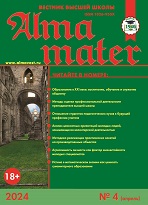https://doi.org/10.20339/AM.05-17.046
L.I. Lourie is Dr.Sci. (Pedagogy), prof., director of Municipal Budgetary General Education Institution “Lyceum no. 1” of the city of Perm, prof. at sub-faculty at Perm National Research Polytechnic University, prof. at sub-faculty at Perm Military Institute of Internal Troops of Russia, the winner of the prize of the President of the RF in the field of education, honored teacher of the RF
e-mail: lourieleonid@gmail.com
Considered are mechanisms of implementation of educational experience, creating in the process of pedagogical cooperation with the aim of promoting educational reforms. Investigated are failures of previous stages of development of education, and highlighted are synergetic points of growth in activity of pedagogical community. It is noted, that important indicator of quality of education is readiness of collectives to pedagogical cooperation. Stressed is, that very important might become cooperation of several educational institutions for solving of scientific production problems. Also revealed is significance of Internet as factor, helping to unify the space of cooperation by many links trough social network connections. They are creating new space of cooperation, principal peculiarity of such consists in non-limited free form of self-identification by students. Characterized are connected with that process problems for organs of administration of education, connected with management of education.
Key words: atmosphere of cooperation, cooperation in education with foreign countries, modern forms of collectivism.
References
- Buldakov, V.P. Modernization & Russia. Between progress and stagnation? Problems of Philosophy. 2015, no. 12, pp. 15–26.
- URL: http://omiliya.org/article/chisteishii-obrazets-dmitrii-bykov
- Veller, M. All about life. Moscow, 2005.
- URL: http://e-libra.ru/read/194941-poyushhee-serdce.html
- Kiselev, G.S. How to talk about the meaning of history? Problems of Philosophy. 2016, no. 5, pp. 5–14.
- URL: http://komsomol-100.narod.ru/stih/stih.htm
- Pedagogical anthropology. Moscow, 1998.
- Projective Philosophical Dictionary: New terms and concepts. St. Petersburg, 2003.
- URL: http://dic.academic.ru/dic.nsf/dic_synonims/251368











.png)






